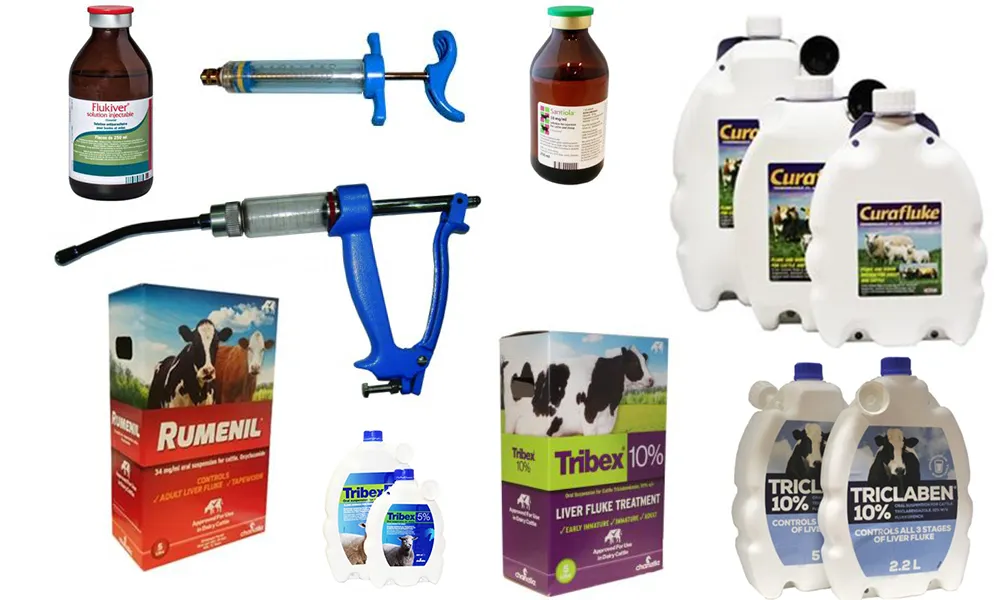
Ongoing debate
The debate between farming groups and the Government on the issue of wormer resistance continues to spark intense reaction. Despite growing resistance from many quarters, the Government seems determined to introduce a Veterinary Medicinal Products, Medicated Feed and Fertilisers Regulation Bill, which will see tight restrictions placed on the sale of a wide range of anti-parasitic treatments. Ultimately, the bill will make the sale of anti-parasitic treatments subject to receipt of a veterinary prescription.
This will mean that farmers will be unable to purchase antiparasitic drugs without first obtaining a prescription from their veterinarian.
Anthelminthic resistance
The Government says that the restrictions are a necessary response to the rising evidence of anthelminthic resistance on Irish farms, claiming that farmers are overusing the products and reducing their long-term effectiveness.
While acknowledging the reality of the problem of anthelminthic resistance, farming groups and retailers object to the Government's proposals on several grounds. In the first instance, farming organisations have pointed out that the proposed legislation will have dire economic consequences for small farmers. They maintain - with a lot of justification - that the legislation will provide vets with a monopoly on the sale of anti-parasitic treatments. The potential knock-on effects of such a move for the agricultural sector are wide-ranging.
Handing vets a monopoly?
Speaking recently to Agridirect.ie, Hugh Farrell of the Irish Cattle and Sheep Association (ICSA), explained that the large number of retail outlets selling wormer products in this country has been essential in keeping prices stable. The proposal to hand control of these products over to vets, Mr Farrell says, is anticompetitive and will cause prices to soar.
Furthermore, Mr Farrell points out that the rise in prices and exorbitant veterinary fees may cause many farmers to underdose animals. Naturally, this would be a disaster for Ireland's agricultural sector, because it would compromise the efficiency of animal performance.
 Hugh Farrell of the ICSA
Hugh Farrell of the ICSA
Opposition from retailers
The staunch opposition of farming groups accords with the position of the Irish Licenced Merchants Association (ILMA), which represents the many retailers currently selling wormers and other treatments on their premises.
The ILMA has raised concerns that the proposed regulations will shut down many small businesses in rural Ireland. These are businesses that currently employ staff trained in the sale of anti-parasitic drugs, and which will be devastated if control of sale is placed solely in the hands of vets. Under current law, retail staff engaged in the sale of drenches and other treatments must possess a QQI Level 6 qualification in the retail sale and supply of animal medicines. The proposed legislation would severely diminish the value of that qualification and leave many out of work.
Government must consider other options
All of these factors are serving to sharpen the feeling, among farmers and their representative bodies, that the current Government is anti-farmer and detached from reality when it comes to the challenges facing rural dwellers. Whether or not this sentiment is justified, the fact remains that the Government needs to consider other options around control of anti-parasitic treatments.
Alternative approaches
As an alternative to the potentially draconian measures proposed by the new bill, farming groups are asking for a compromise.
One such compromise, as we have previously pointed out on this platform, would be for the Department of Agriculture and Teagasc to invest in the provision of additional training to farmers on the purchase and use of wormers. Training provision has proven to be very effective in changing farming practices in the past, and farmers would not view it as punitive in the way that they undoubtedly perceive this proposed legislation.
Another viable approach has been proposed by the ILMA, which is asking the Government to meet them halfway on this issue by forming a regulatory body for Responsible Persons in the retail sector. This new body would create and maintain a code of practice to ensure responsible prescription practices among retailers, address environmental concerns and safeguard the viability of medicinal ingredients. The Association says that it is willing to work with the Department of Agriculture, Food and the Marine to form a specific prescription classification for Licensed Merchant medicines that will not clash with full veterinary prescription.
Perhaps a combination of these approaches would be the most effective approach. It is hard not to think that the Government is missing a trick by not exploring them further.










